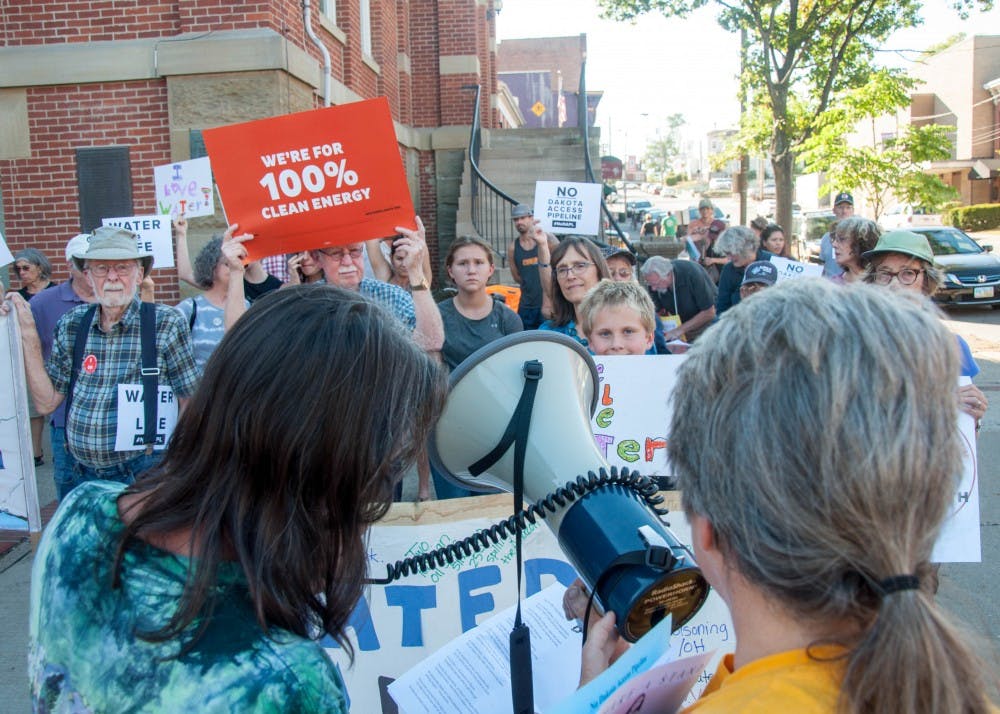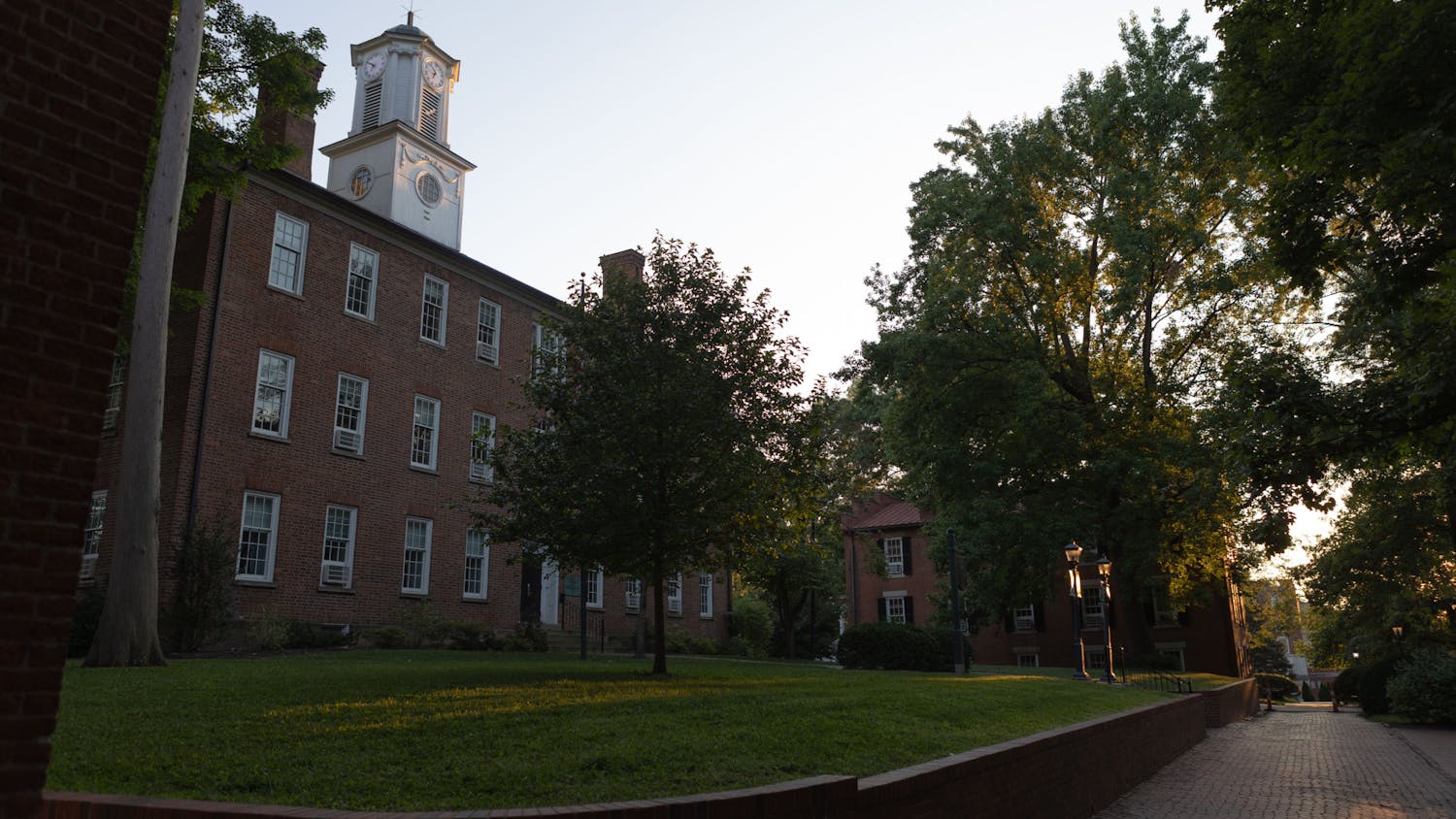Two groups of activists both found themselves in front of the Athens County Courthouse on Tuesday afternoon to protest against two separate, but compatible, issues.
One group composed largely of students and people under the age of 20, gathered to protest against prison labor. The other, which included older residents and families, protested against the Dakota Access Pipeline, a controversial construction project that cuts through Native American tribal lands and could potentially threaten drinking water supplies for some tribes.
Members of the groups said they did not plan to be there at the same time, but some said they were fighting for similar causes.
“(The prison labor protestors) have issues such as individual rights and I can certainly appreciate that,” Andrea Reik, a Dakota Access Pipeline protester, said. “It’s no different than the Native Americans and their rights being trampled by this pipeline.”
Emily McDermott, one of the activists, said the prison labor protest took place four days after inmates in correctional facilities in a number of states organized strikes and riots, which coincided with the anniversary of the Attica Prison Riot, a prisoner uprising in Attica, New York in 1971.
“It’s really heating up, it’s all across the country,” Kyle Tussing, a senior studying history, said. “In Kinross Correctional Facility (Michigan), prisoners had a huge protest march around their yard, when they were sent back to their housing unit, they trashed the housing unit, set fires, and tried to escape.”
Tussing said he thought prisons were essentially another form of slavery, and did not actually lead to rehabilitation.
“The operation of slavery moved from plantations to prisons,” Tussing added. “What you see is prisoners doing agricultural work, ... they’re still slaves."
Pipeline protestors began to arrive in front of the courthouse about 20 minutes after the prison protestors.
According to a flyer handed out by those protestors, the more than 1,100 mile crude oil pipeline has garnered opposition from environmental activists and Native American tribes. The pipeline’s planned path would cut through wildlife habitat and cross under the Missouri River which could threaten drinking water downstream if a leak occurs.
The pipeline will also cut through land that is considered historically significant to tribes like Osage Nation and Iowa Tribe. The Standing Rock Sioux tribe has been a primary opponent of the project, according to an article from Mother Jones.
“We’re here in solidarity with the Sioux tribe at Standing Rock,” Sara Quoia, one of the speakers at the event, said. “We’re trying to keep the government from allowing a pipeline to run across their waterways.”
The protest organizers also drafted a letter to President Barack Obama urging him to "halt the construction" of the pipeline. As of now, Obama has temporarily blocked construction in response to nationwide protests.
"This pipeline is equivalent to 30 coal burning power plants a year,” Reik said. “It doesn’t fit with Obama making a plan to reduce carbon emissions. This is totally opposite.”
Claire Seid, a senior studying sociology, said she was there for both events.
“It's incredibly important that any kind of activist be intersectional in their struggles and support all causes," she said. "The most important thing in creating change in the world is showing up.”






